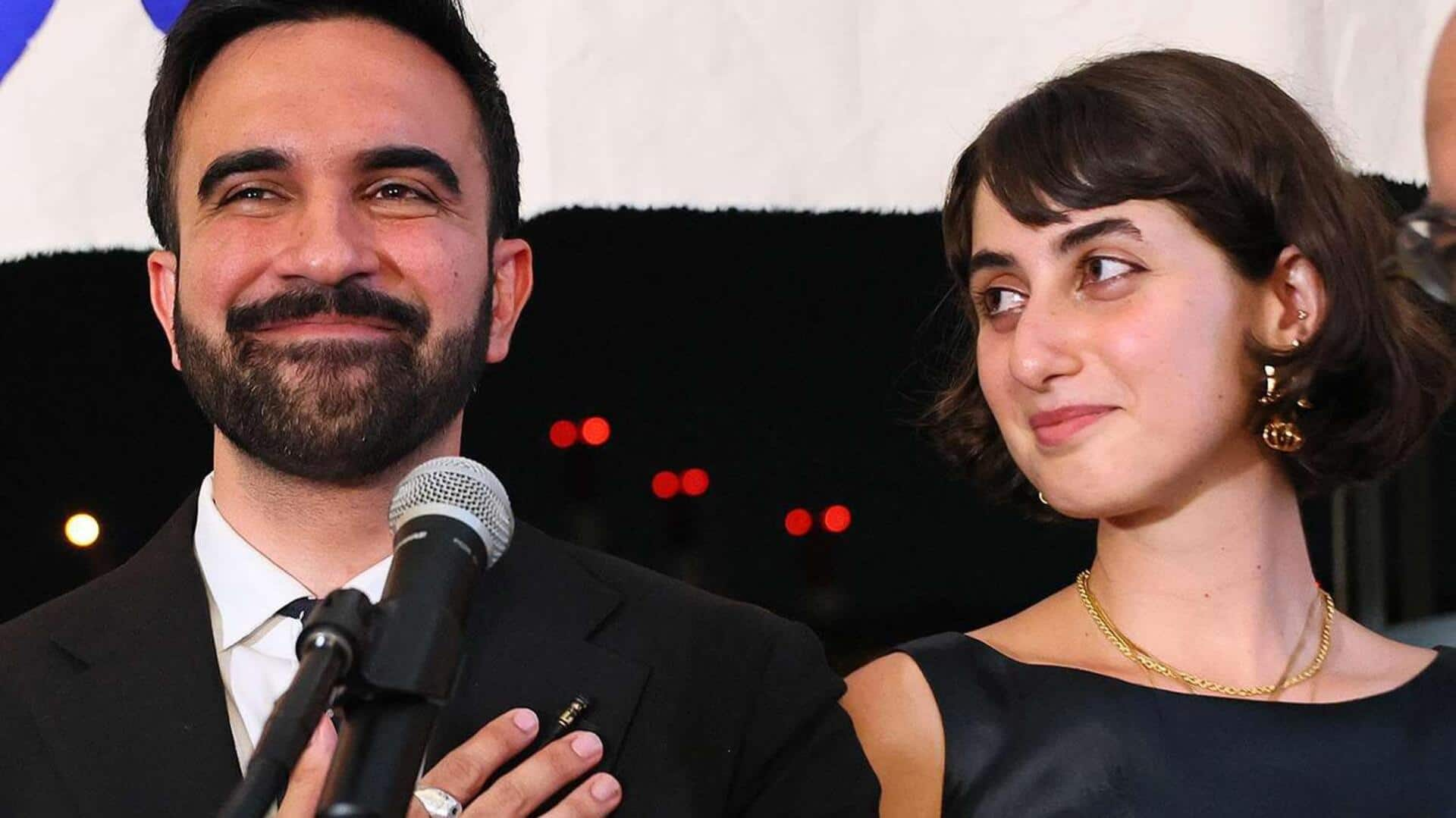
How Zohran Mamdani's wife quietly played role in his victory
What's the story
Rama Duwaji, the wife of newly elected New York City mayor Zohran Mamdani, played a pivotal role in his successful campaign. The 28-year-old ceramist and illustrator was instrumental in creating Mamdani's unique campaign branding and social media strategy. Despite her major contributions, Duwaji remained largely out of the public eye during the election season. She only made one social media post about the race after Mamdani's surprise primary victory in June, writing, "Couldn't possibly be prouder."
Campaign design
Duwaji's role in Mamdani's campaign
Duwaji, a Syrian-American who moved to New York four years ago, helped design Mamdani's campaign logos and brand identity. The bold yellow, orange, and blue colors used in his campaign materials were her brainchild. However, she chose to stay away from major public appearances and debates. While she has been quiet in public, the couple's acquaintances rave about Duwaji. Hasnain Bhatti, a friend, even went so far as to call her "the modern-day Princess Diana" in an interview with NYT.
Personal insights
Couple met on dating app Hinge
Duwaji met Mamdani on the dating app Hinge in 2021 and they got engaged in October 2024. The couple married in a civil ceremony in Lower Manhattan earlier this year. Of late, Duwaji has garnered attention for her artwork, which includes pro-Palestinian pieces. When asked about artists having opinions on global issues, Duwaji earlier said, "An artist's duty, as far as I'm concerned is to reflect the times...I believe everyone has a responsibility to speak out against injustice."
Privacy defense
Her works
Her work has spread far and wide. She also posts a lot of her work on Instagram, which frequently includes powerful pictures criticizing Israeli state aggression. One of her more notable illustrations shows a young Palestinian girl holding an empty pot with the words "Not a Hunger Crisis" written over it. The scene then turns to a group of individuals holding similar pots, accompanied by the phrase, "It is deliberate starvation."